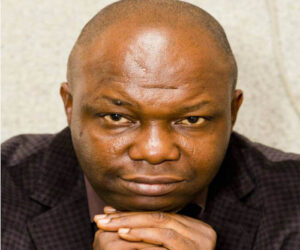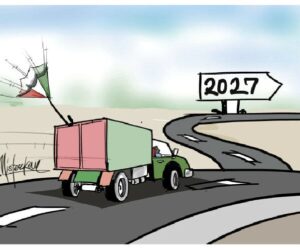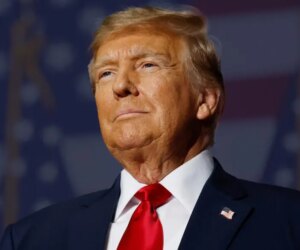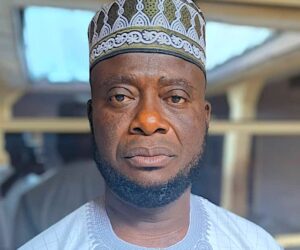The branding of the All Progressives Congress (APC) and the Peoples Democratic Party (PDP) as terrorist organisations has been followed by a repudiation of the Canadian court by officials of both parties. In doing so, they ignored the fact that action begets reaction.
This is a truth that has been tested and upheld over the centuries. Like they say, there cannot be smoke without fire. But one truth is eternal here –the fact that the world has become a village where everyone knows, and observes, what the other is doing.
Both APC and PDP may deny the facts as upheld by the Canadian court, but public perception, within Nigeria, tend to show that both parties have, in their expression of political power, progressively abused democratic rights, and infringed on the people’s right to violence-free elections as well as destroyed the people’s right to freedom to enjoy the proceeds of their willfully cast votes. These acts may add up to what defines terrorism in the mind of the Canadian court, and under the Immigration and Refugee Protection Act (IRPA). After all, the simple definition of terrorism is “the use of violence and intimidation especially for political purposes to instill fear and coerce governments or populations.” It is further described as “a calculated method aimed at achieving specific political social or ideological goals by creating a climate of fear.” These understandings indicate that terrorism can be perpetrated by individuals groups or even state institutions.
The Canadian court may not have explicitly disclosed specific actions of APC and PDP governments that qualify them to be so branded, however, observed iinvolvement of their governments, and supporters, between 1999 and 2025, in the “subversion of democracy, political violence and electoral bloodshed” bring them within the context of the above definitions. The Canadian court cannot, therefore, be wrong if, for instance, one takes into context the expressions of APC supporters in Lagos during the 2023 governorship elections. For instance, video recordings of MC Oluomo threatening Igbo people resident in Lagos with death if they stepped out to legitimately exercise their democratic rights in the governorship election, is still available on the internet. It is also viewed by millions of people around the world including officials of the Canadian government. This is just one of such cases. There are numerous others that qualify for assessment as terrorist actions for which no evidence exists of their repudiation by APC.
Canada’s IRPA sections 34(1)(b.1) and 34(1)(f), bar individuals affiliated with organizations engaged in terrorism or subversion of democratic processes. The court, presided over by Justice Phuong Ngo, upheld the Immigration Appeal Division’s (IAD) findings that both the APC and PDP were implicated in “political violence, subversion of democracy, and electoral bloodshed.” The ruling cited instances of ballot stuffing, voter intimidation, and killings during the 2003 state elections and 2004 local government polls, under the PDP’s tenure. That is now extended to the APC based on similar patterns of electoral misconduct. That provides logical grounds to conclude at mere membership in either PDP or APC, regardless of personal involvement in violent acts, was sufficient grounds to trigger the labeling.
What this indicates is that the eyes of the world are upon Nigeria, and its political leaders no longer need to go on behaving like Nigeria is an island ostracized from the world, existing on its own and for itself only as their actions, may trigger reactions, like the instant one from the Canadian court, which could be expressed under national security interest and the protection of democracy. The Canadian court’s decision hints us that Nigeria’s elections, even as seen in last weekend’s bye-elections, constitute a breach of democratic processes under Canada’s legal standards. It is for Nigerians to understand that actions such as electoral violence, voter suppression, and manipulation of the electoral process are translated as subversion and meet the threshold for terrorism under Canada’s IRPA. This contrasts with Nigeria’s local context, where electoral violence, voter suppression and intimidation as well as other electoral infractions, though criminal, are often normalized as part of a ruling party’s prerogative, and show of popularity.
APC and PDP collectively control the presidency, governorships, and majorities in the National Assembly and state legislatures since 1999. The terrorist label on them, even if limited to Canada’s immigration law, risks undermining their legitimacy. This is made worse by the fact that Nigeria’s politics is already plagued by public distrust with citizens viewing politicians as corrupt, lawless and self-serving. For the APC, which has been Nigeria’s ruling party since 2015, the designation could embolden opposition narratives that portray it as a terrorist-enabling regime linked to violence and authoritarian dictates. The PDP, as the main opposition, faces similar challenges, as the ruling reinforces perceptions of its past governance from 1999 to 2015, which was also marred by electoral rascalism and manipulation.
The implication is that this could erode public confidence in both parties, and potentially drive voters away from them and to new platforms like the African Democracy Congress (ADC) or strengthen the call for independent candidates in future elections. The ruling also has the capacity to deter politically active Nigerians, particularly youths, from joining or remaining affiliated with either APC or PDP. Guess this is why both parties have rushed to dismiss the ruling through press statements without any further action to have it set aside or make commitments about concrete steps that they would take to prove that the Canadian court was wrong.
Young Nigerians, who may be out in search of asylum in Canada, may be discouraged from identifying with the APC or PDP, or even to talk about their previous engagements with the parties with Canadian authorities as that may trigger fear of habouring dangerous persons with a history of association with a terrorist group thus jeopardizing their future prospects. This may also extend to foreign jurisdictions who may have such legal understandings that could make them to uphold the judgement of Canada’s courts. This is part of the danger ahead, which could also negatively affect Diasporan Nigerians who identify with both parties causing them to suffer such things as visa denials, asylum rejections, or travel bans.
There is also the possibility that countries, which have legal understandings with Canada, may also adopt the ruling into their own legal jurisdictions. If this happens, APC and PDP leaders, or members, could be effectively isolated from global opportunities and labeled terrorists and denied certain services like visa and other consular needs. Besides, the ruling also implies critique of Nigeria’s democracy as fundamentally flawed. This could encourage international organizations and foreign governments to impose sanctions, monitor elections more closely, or withhold development aid tied to democratic governance. If such are adopted, they could further destabilize Nigeria’s political environment, and make it more difficult for the APC and PDP to project stability and legitimacy
Canada could also be seen as precipitating a diplomatic row with Nigeria with the ruling, which has the tendency to prompt retaliatory measures or diplomatic tensions while also discouraging diaspora Nigerians from openly affiliating with both parties. This may negatively affect financial contributions and advocacy for both parties from the Nigerian diaspora. This is particularly critical for APC, which had leveraged diaspora support to bolster its international image as a reformist party. The PDP, which seeks to regain power, may also struggle to mobilize diaspora support because its members who fear immigration repercussions may go underground and withdraw support for it. This, therefore, indicates that both parties may have to work together to appeal against the decision and show cause why they need not be branded as terrorist groups. They must not just verbally dismiss the ruling.








